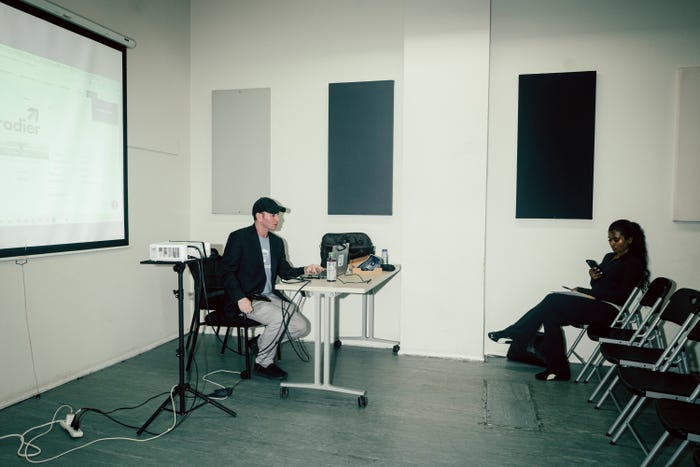UPDATE: Day traders are grappling with an alarming sense of isolation as a surge in interest for trading communities rises by 700% this summer. Traders report that the solitary nature of their profession makes emotional support difficult to find, leading to significant mental health concerns.
Just announced, a report reveals that loneliness is a widespread issue among day traders, with many feeling disconnected from others who understand the unique pressures of trading. A recent study highlighted that crypto traders and users of real-time investing platforms scored higher on the UCLA Loneliness Scale compared to regular investors.
Daniel Alhanti, CEO of the trading education group TraderDaddy, emphasized that the loneliness inherent in trading is a significant factor driving the growing interest in group trading initiatives. “I like to call it a very lonely sport,” he stated, comparing day trading to professional sports where individuals often travel alone to compete.
One trader, Enrique Rendon, 20, shared his personal journey, stating, “I feel like in the future it might change… I’ve come to accept the fact that if I’m going to take this road, this path, obviously it’s the downside.” Despite the isolation, he remains motivated by the dream of financial stability.
The isolation is not just a personal experience; it is echoed by many in the trading community. Melissa Avutan, CEO of BullMentor, founded her platform to combat the loneliness she experienced as a trader. “You spend so much time on it… I basically dedicated almost my entire life to it,” she explained.
In Seattle, Mark Lacy, 67, spends around six hours a day trading alone, often filling the silence with news networks. He admitted to feeling lonely at times, particularly on weekends, but understands the need for focus in the fast-paced trading world. “Being a few minutes late to a trade can make or break your profit,” he noted.
Meanwhile, Kenneth Schweitzer, 68, a former healthcare professional, views his solitary trading experience as a form of relaxation. “Just because they don’t want to be around people, it’s an acceptable way to make money,” he remarked, highlighting how personality plays a role in choosing trading as a profession.
Despite the challenges, the demand for community among traders is escalating sharply. Google Trends reports a staggering 572% increase in searches for “day trading group” this past quarter. In-person trading events remain scarce, and many traders are struggling to find supportive connections.
Alhanti is responding to this demand by hosting nightly Zoom calls and monthly in-person classes in New York City. “The goal is to take this from a lonely sport to a team sport,” he stated, emphasizing the importance of collaboration and shared learning among traders.
As the trading landscape evolves, the mental health of day traders is increasingly under scrutiny. The isolation felt by many is prompting a call for stronger community ties and support networks. The rise of trading groups and online platforms signifies a shift towards addressing these emotional challenges, ensuring that traders are not left to navigate their journeys alone.
This urgent issue highlights the need for traders to connect and share experiences as they brave the challenges of the stock market. The rise in interest for community support indicates a growing recognition of the importance of mental health in trading, an arena often perceived as solitary and isolating.
Stay tuned for further updates on this developing story as the trading community seeks to bridge the gap between isolation and connection.
